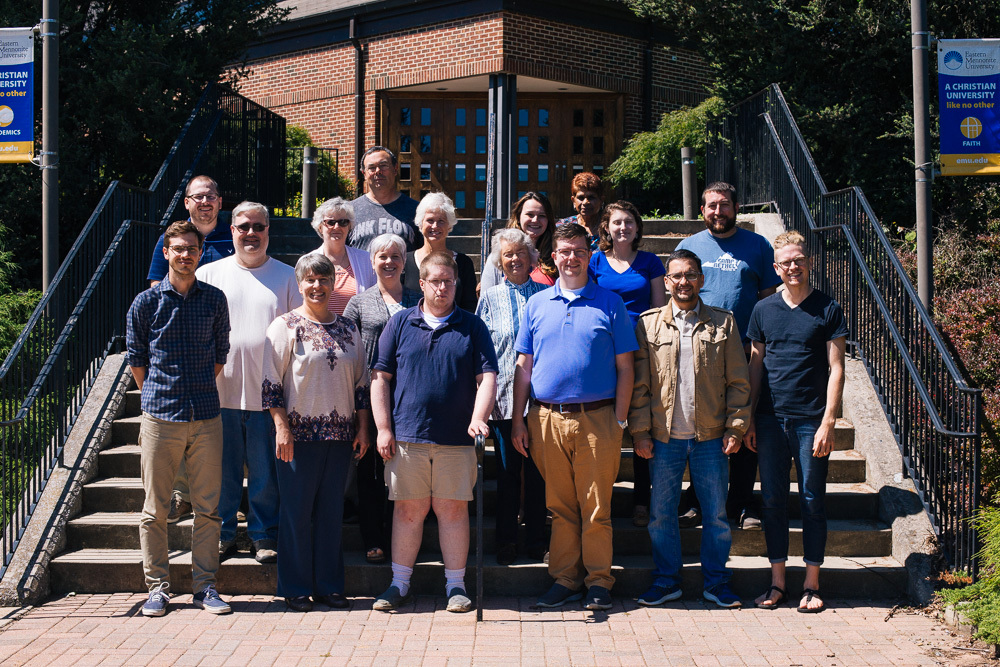Working as a full-time pastor in Roanoke, Virginia, or a volunteer chaplain in Lancaster, Pennsylvania, and taking courses at Eastern Mennonite Seminary are no longer incompatible, thanks to a relatively new option: hybrid courses.
In August, two such courses on the Gospel of Luke/Book of Acts and the psychology of religion – each met for an intensive week of 20 hours of class time, with the remainder of coursework unfolding over seven additional weeks of online interaction. An additional course, on formation in missional leadership, is underway online and will complete its face-to-face component in October.
“We are turning more and more often to a hybrid format for course offerings,” said Nancy Heisey, associate seminary dean. “Many of our students live at a distance or are working full time, yet value the opportunity for face-to-face learning as well.”
The Luke/Acts class brought students from five states, including Adam Stultz, who is pursuing an MDiv while serving as a full-time associate pastor at Summerdean Church of the Brethren in Roanoke, Virginia.
“I think a deep understanding of these books will also be helpful for preaching and teaching,” he said. “I like the fact that this course only requires me to be away from my family and my congregational duties for five days on campus, then I have the flexibility to complete the coursework on my own schedule.”
Donna Becker, a volunteer chaplain and employee at Landis Homes Retirement Community in Lititz, Pennsylvania, took the class to “learn better ways to interpret and understand these books so I can interpret and teach them in my ministry context,” she said.
The hybrid course format has pros and cons, she said.
“I liked being in class for the first week, getting to know my classmates and the professor in person and interacting with the texts with others,” she said. While she will miss that in-person interaction, she said, it is the online component that “makes it possible for me to take the course.”
For Professor Lonnie Yoder, teaching hybrid courses – the psychology of religion class is his seventh hybrid course since 2015 – means adapting content and pedagogy to two different modes in what he describes as an “improvisational dance” that he has found fulfilling.
For the initial intensive week, he focuses on building community through personal, active engagement through mini-lectures, small group work, video clips, music and more. Often students will, without prompting, bring food to share with the class, and spend breaks during sessions connecting with each other in the lounge.
The subsequent online component allows more time for students to engage with various texts. Yoder creates a short introductory video for each week’s assignment, and grades and returns student work promptly in order to keep students engaged.
That engagement is key to having “good energy” in the class, he said.
